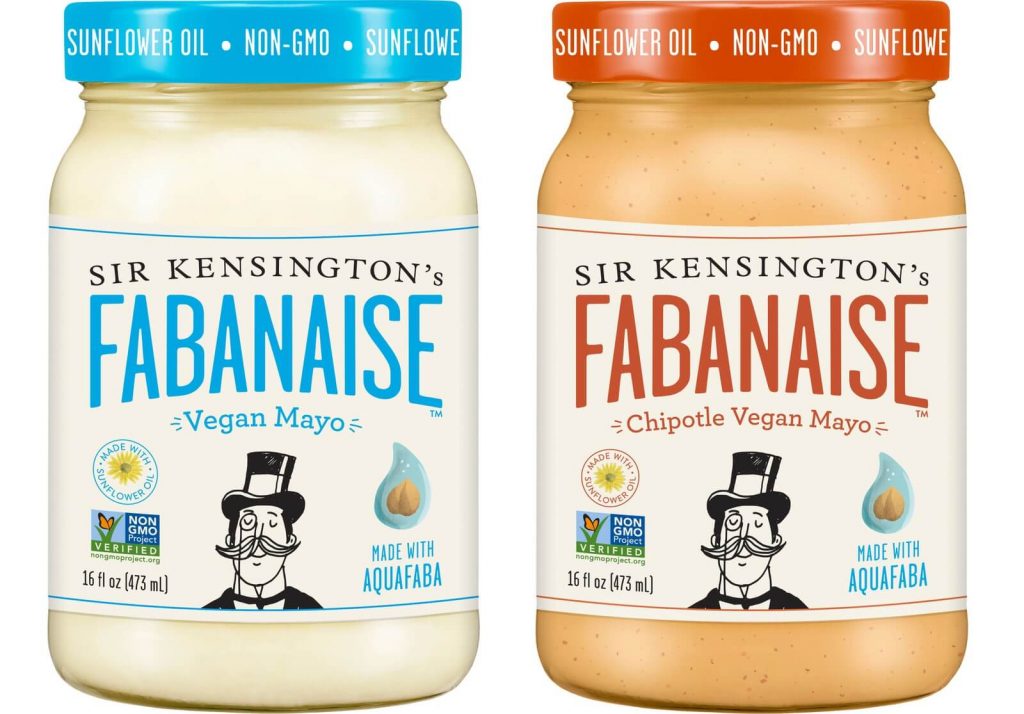Category: snacks
Raw material: corn germ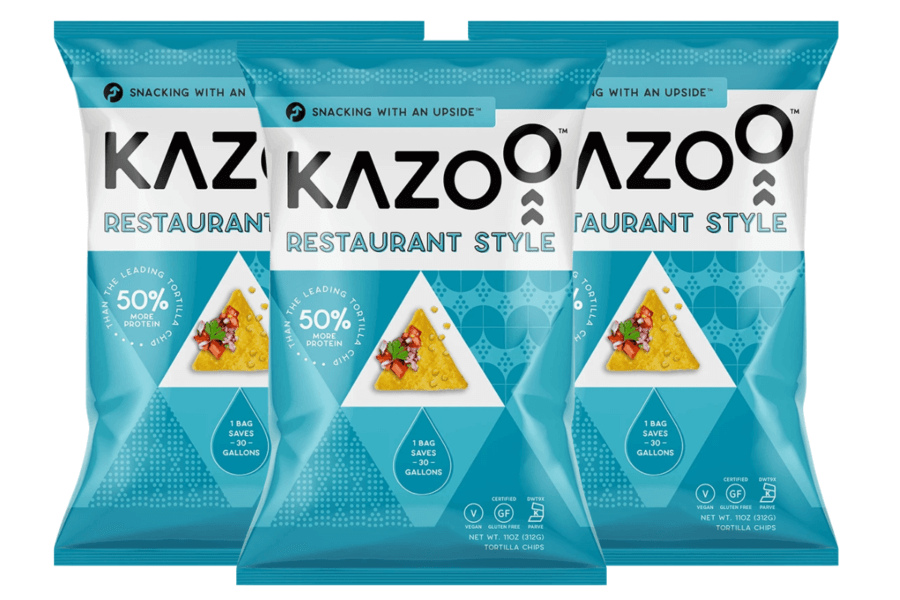
Kazoo Snacks offers a vegan Kazoo Restaurant Style tortilla that contains corn germ, a by-product of corn oil production that is often used in animal feed or thrown away. Each 310g sachet contains 3 grams of protein and is gluten free.
Category: snacks
Raw material: processed oranges pulp
UFA experts have calculated that in the production of orange juice, up to one million tons of pulp is produced annually. And while farmers have the opportunity to use the remaining pulp for livestock feed, hundreds of thousands of enterprises from orange juice producers to cafes in the HoReCa segment preparing natural orange juice, simply throw away used orange pulp.
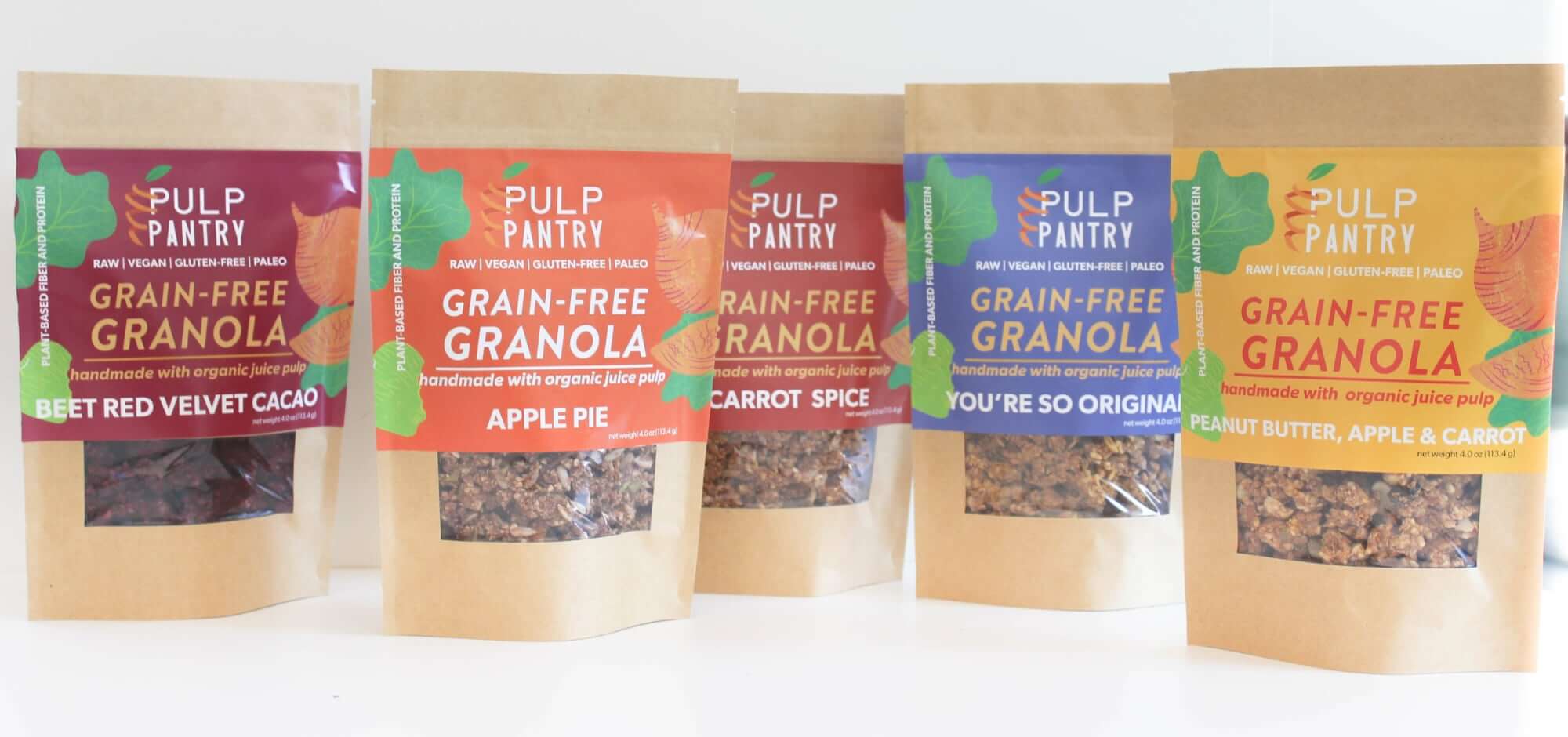
Founded in 2015 in California, Pulp Pantry turns fiber-rich pulp into granola. The resulting product consists of 50% juicing pulp, which then gets dried and crushed to powder before being used in snacks. Pulp Pantry muesli in 140g bags is sold for $ 8.99 in the manufacturer’s online store, Amazon, and 40 regular retail stores.
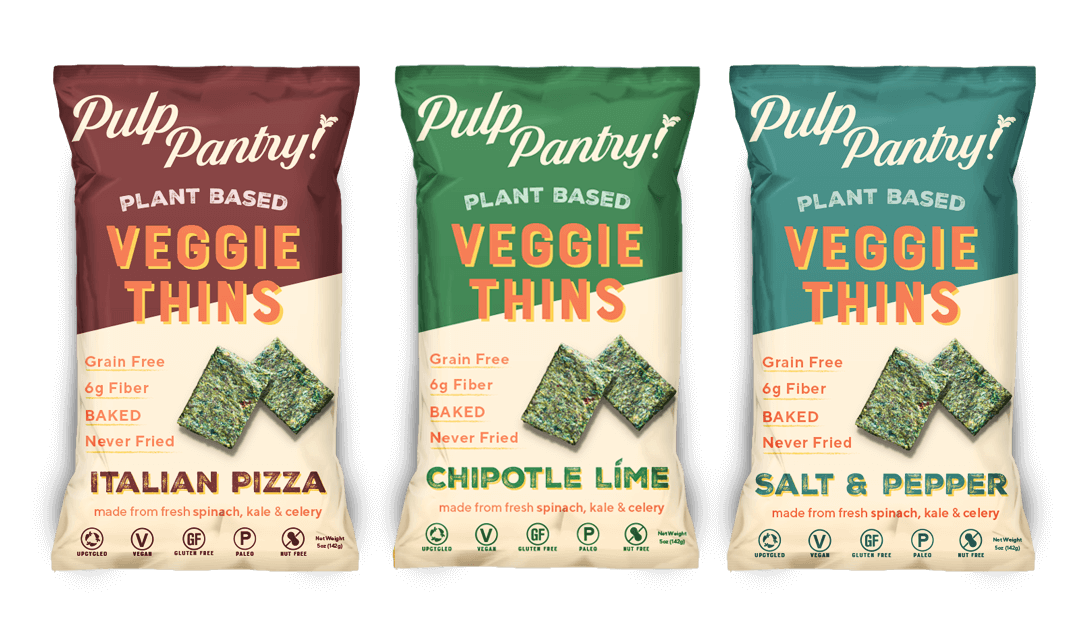
Pulp Pantry’s other savory product, Veggie Thins, a crisp-like snack made with orange pulp and celery pulp, was launched in January 2019. The company seems to have found a gold mine, as the US juice market will reach $ 8.1 billion by 2024, according to Wintergreen Research, leading to an increase in orange pulp waste left over after pressing. So, Pulp Pantry will not be left without raw materials.
Category: soft drinks
Seeds, evaporated fruit water, grape skins
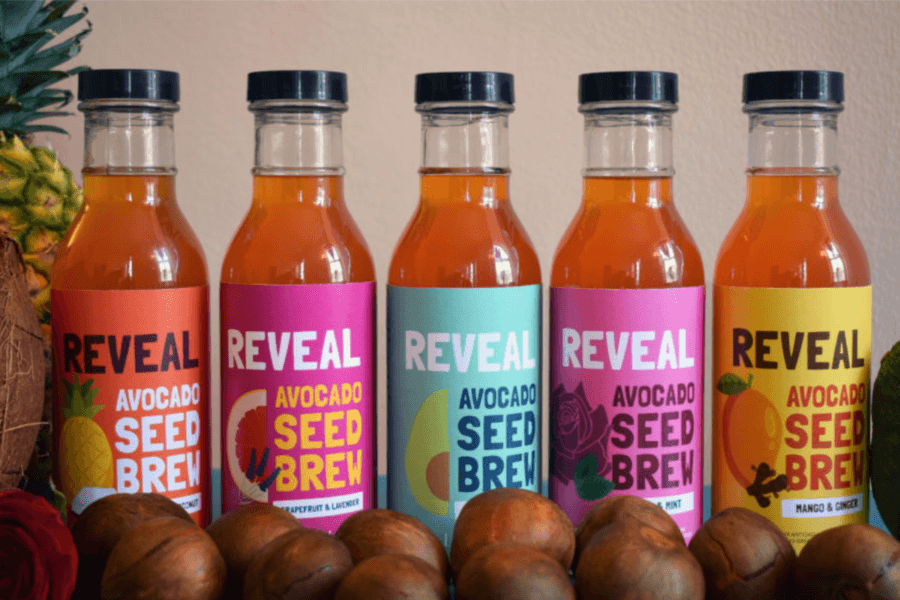
Hidden Gems Beverage Co. produces Reveal soft drink made from avocado seeds. Using a patented process, the seeds are brewed to create a still beverage that contains three times the antioxidants of green tea. The product is available in 350 ml bottles. There are 5 SKUs in the line. The most popular are Grapefruit&Lavender, Mango&Ginger, Rose&Mint.
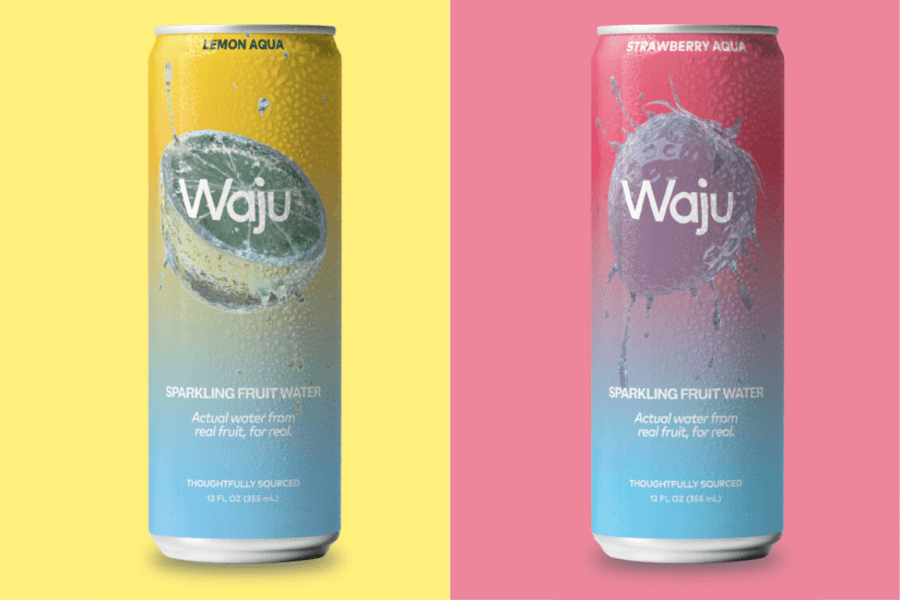
Waju carbonated drink is manufactured by Blue Yonder Brands, Inc. Waju Fruit Water is made from water lost during the dehydration of the fruit in the juice concentrate production. 2 SKU with lemon and strawberry flavor, no added sugar and only 5 calories.
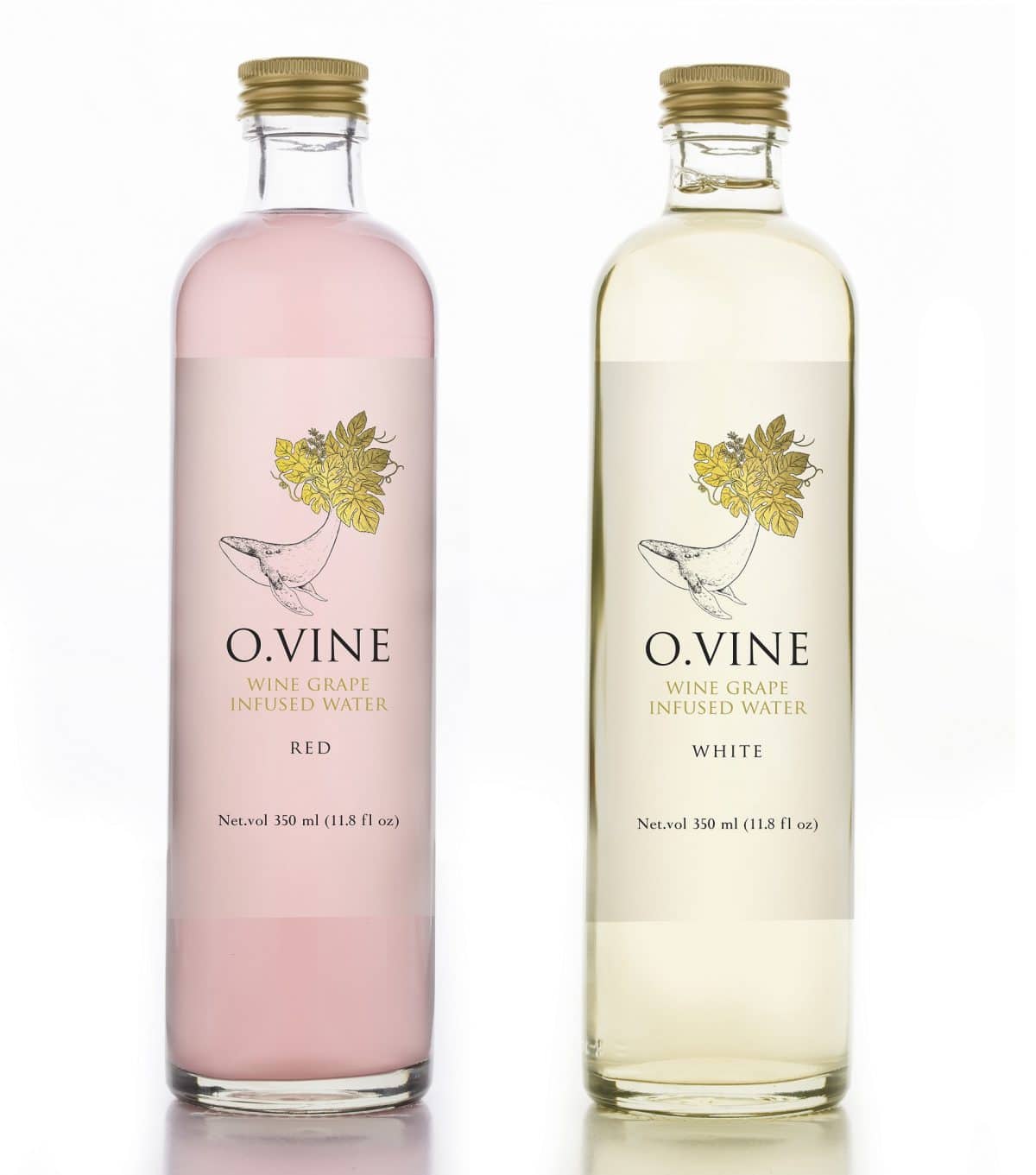
The Israeli company O.Vine produces the purest spring water, flavored with natural grape skins leftover from wine making, which is normally disposed of in landfills. O. Vine non-alcoholic water does not contain colorants, preservatives or fragrances. The line includes two non-carbonated drinks and two carbonated ones infused with red (from Cabernet, Merlot, Syrah and Petit Verdot) and white varieties (Riesling, Gewürztraminer) grapes.
Category: functional products
Raw material: berry seeds, processed fruits and cereals
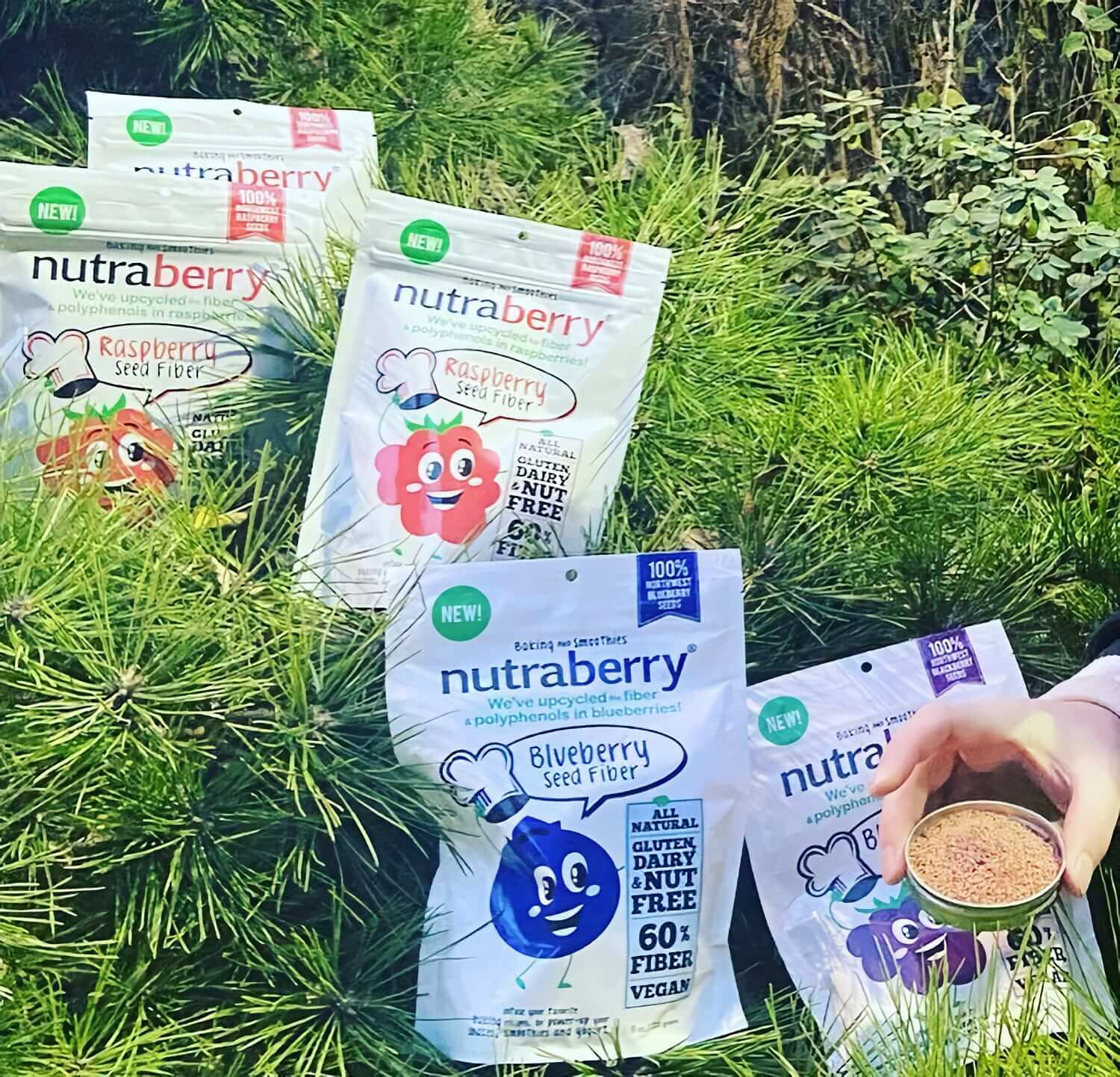
Seattle-based manufacturer Nutraberry uses recycled berry seed fiber and polyphenols to create powder that can be added to baked goods, smoothies and yogurts. Rich in fiber and micronutrients from an authorized UFA member, Nutraberry packages are available in 3 flavors: raspberry, blackberry and blueberry.
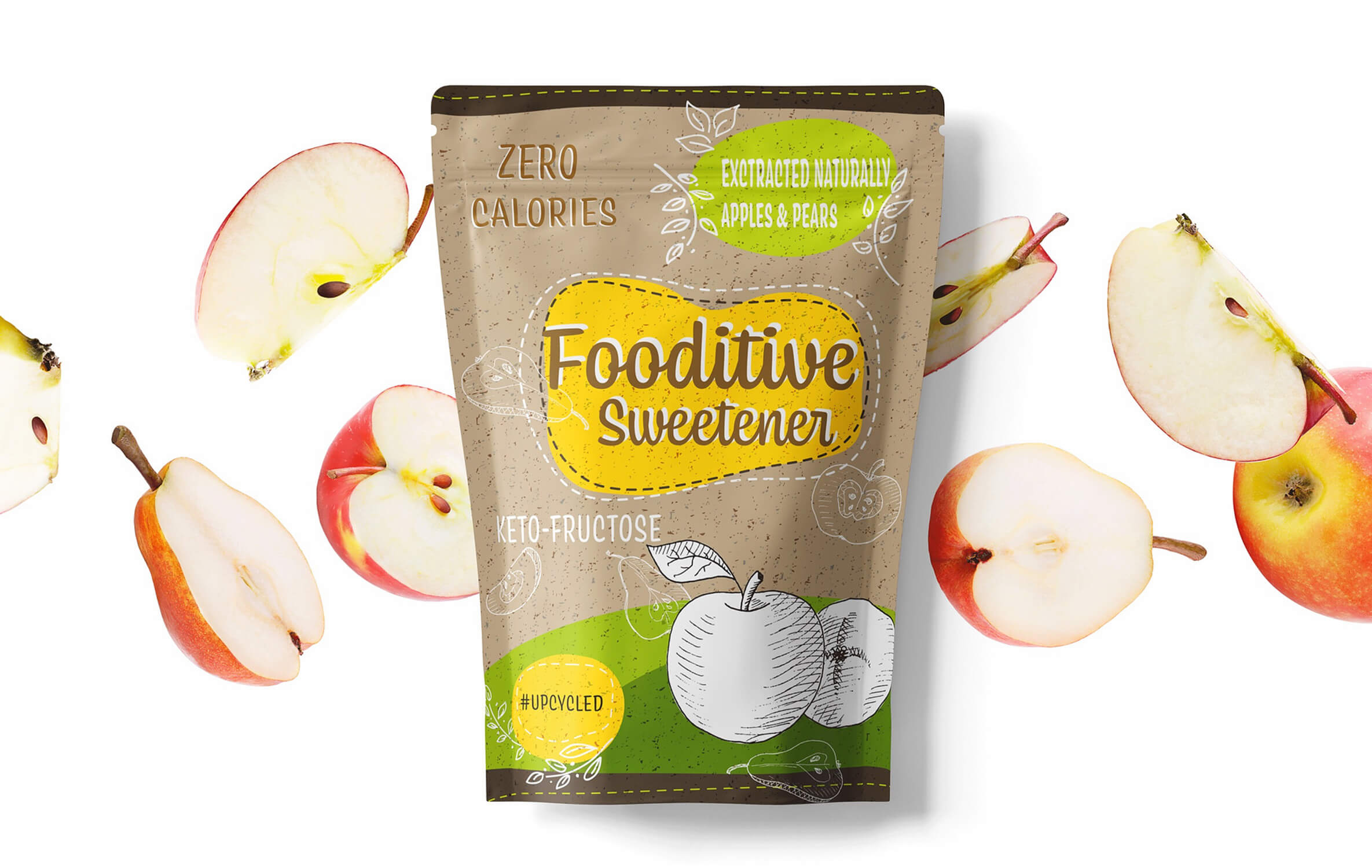
Fooditive headquartered in Rotterdam, the Netherlands, markets vegetable sweetener made from apple and pear waste to the European market. According to the company, Fooditive Sweetener is calorie-free, has «clean» sweet taste and functionality similar to sugar. In addition, besides powder, the novelty is available in the form of syrup.
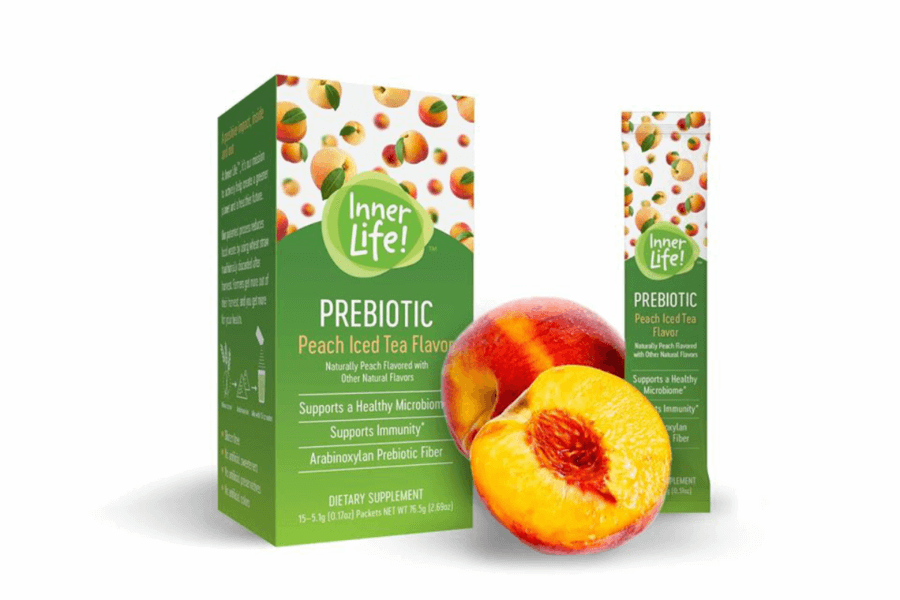
Inner Life Prebiotics produces a powdered prebiotic beverage mix that includes the prebiotic fiber arabinoxylan, an insoluble fiber sourced from processed wheat crop residues. Designed to support digestive and immune health, it is flavored with iced peach tea and contains 3.8 grams of prebiotic fiber.
To extract the prebiotic fiber arabinoxylan, Inner Life! uses steam and pressure rather than chemicals or enzymes, which compares favorably with other prebiotic manufacturers. By using the leftover stalks of Inner Life! also allows farmers to use the entire crop and reduce food waste. A box of 15 single-use sachets is sold at InnerLifePrebiotics.com.
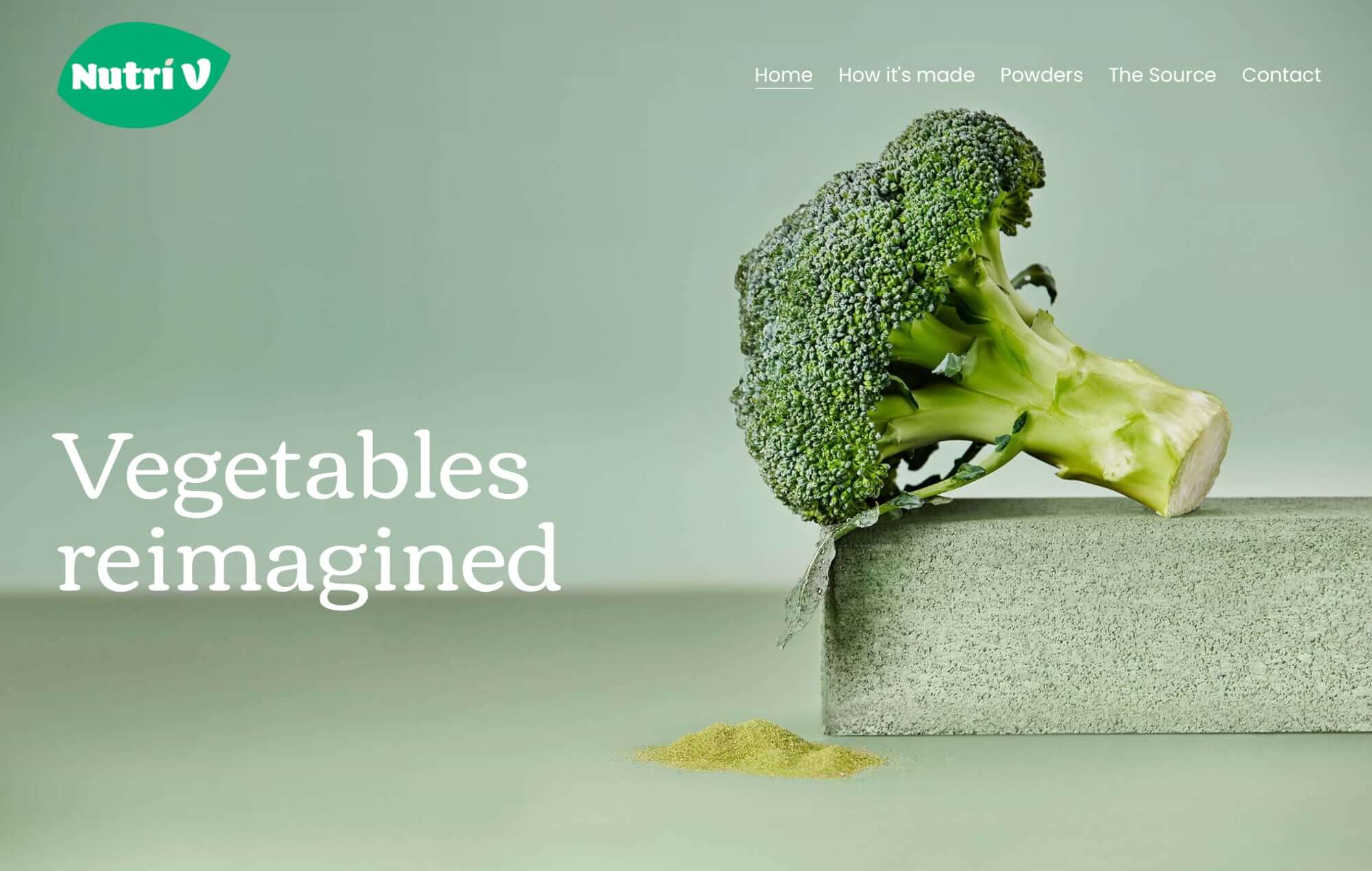
Founded in 2019, Melbourne-based Nutri V is the result of an initiative from Australian National Science Agency CSIRO and vegetable producer Fresh Select. The new company will focus on the production of food products from recycled vegetable waste into food mixes and powders. The collaboration is part of an ongoing CSIRO project to recycle vegetable waste from broccoli and carrots into valuable food and additives, which it is partnering with Hort Innovation, a partnership of the country’s gardeners. Food waste costs the Australian economy $14.5 billion annually.
Nutri V’s products will initially be available in Australia (the company plans to launch an online store in 2021), but the company is also thinking about Asian markets and looking towards Hong Kong, Singapore, Japan and South Korea, which offer great opportunities for manufacturers of similar products.
Category: yogurts
Raw material: fruit waste
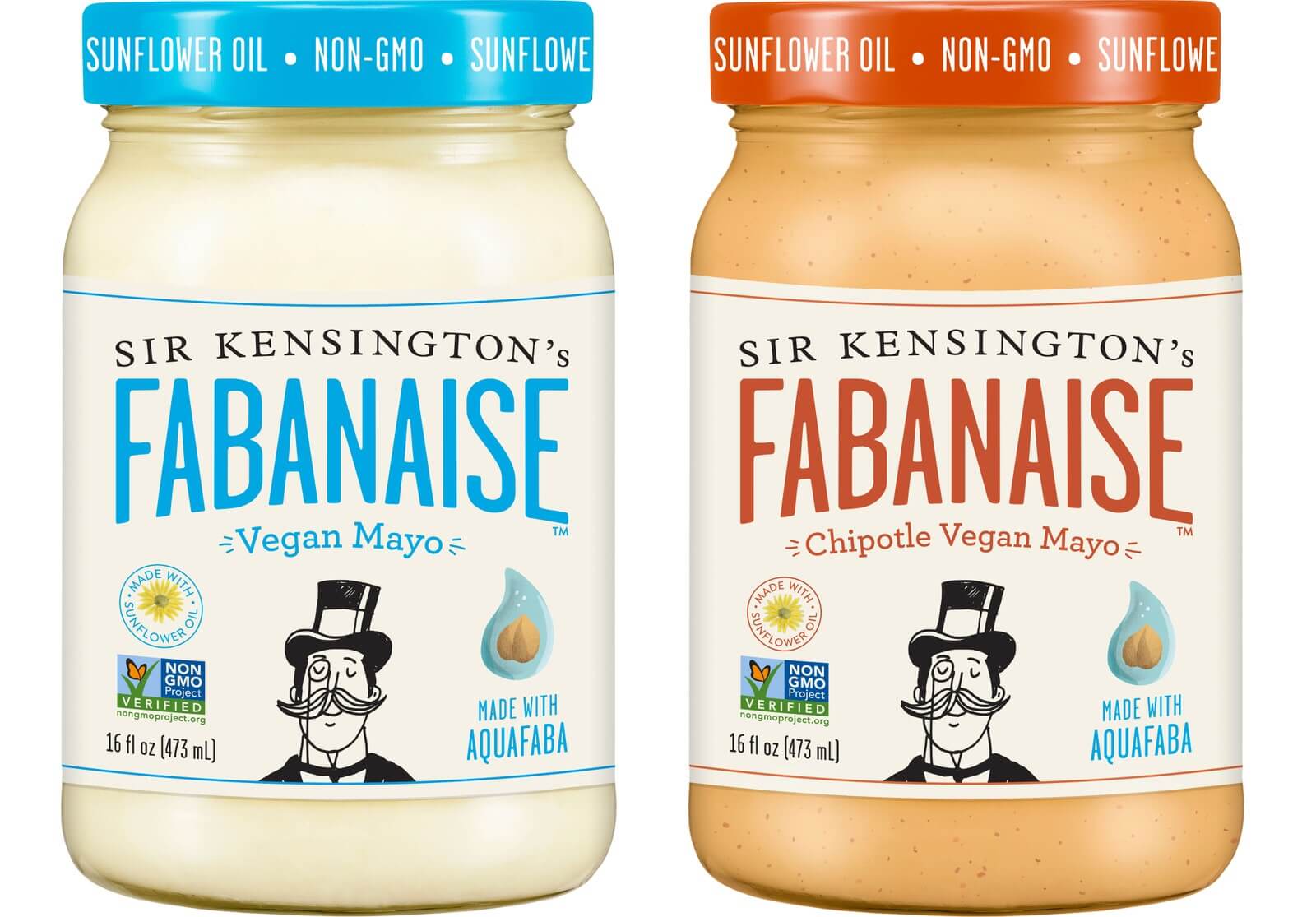
There are special programs aimed at reducing food waste and other major players in the food industry. For example, one of Unilever’s initiatives includes the use of aquafaba in its food products, a viscous canned liquid made from soaking or boiling legumes that consumers typically drain down the drain when they open a can of canned chickpea seeds.
Popular with the growing vegan community, aquafaba can be used instead of egg whites in many sweet and savory recipes. A unique blend of starch, proteins and other soluble plant substances that have migrated from the seeds into the water during the preparation process, gives aquafaba a wide range of emulsifying, foaming, binding, gelatinizing and thickening properties and makes it insanely popular. Even popular New York restaurants such as Nix and Blue Hill have included aquafaba as a way to make frothy cocktails from herbal ingredients.
Unilever’s aquafaba is the very “secret sauce” in 2 SKUs of Fabanaise vegan mayonnaise, which is produced under the Sir Kensington’s brand (the brand was acquired by Unilever in 2017).
Category: catering
Raw material: vegetable waste
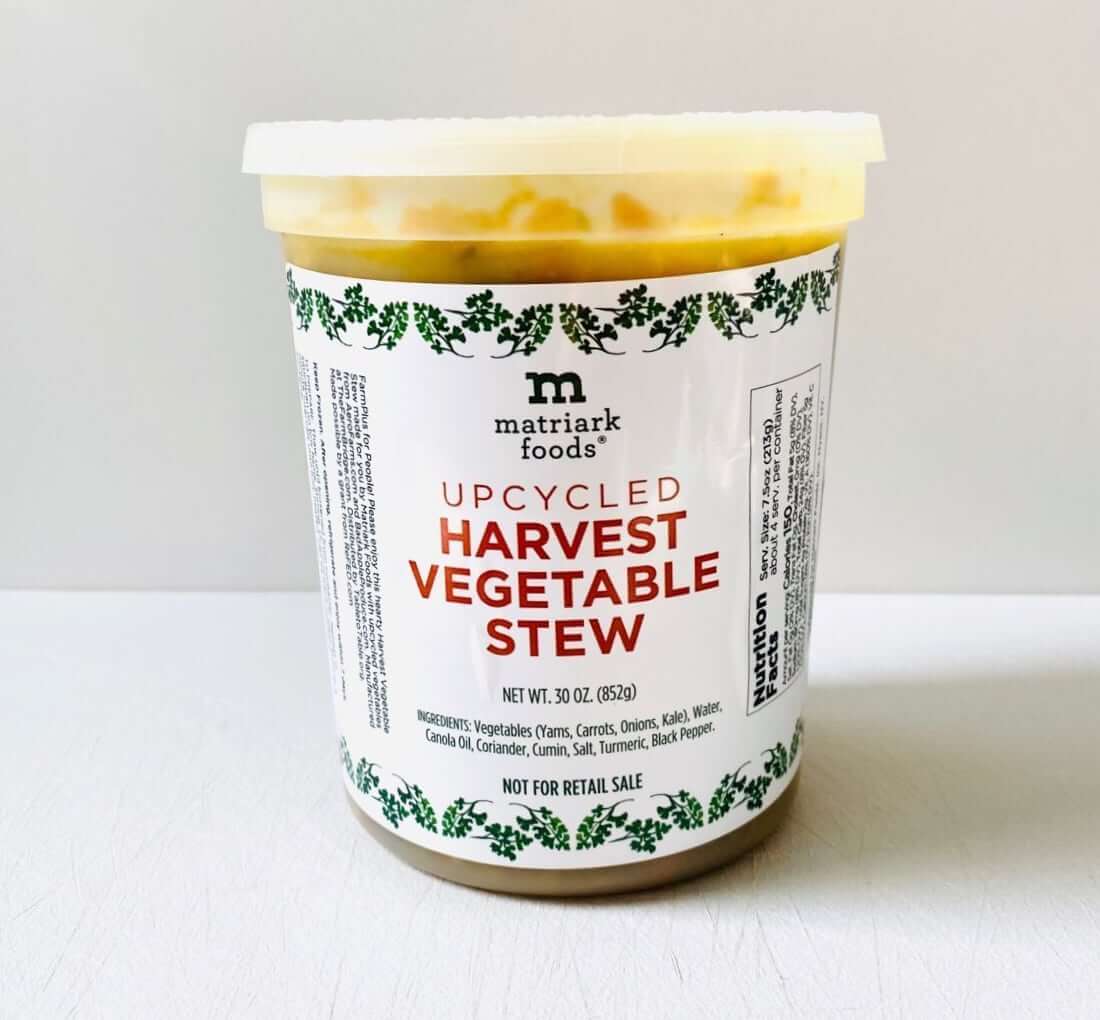
Circular economy does not only work with products for the FMCG market. For example, Matriark Food, founded in 2018, has decided to focus on catering. Matriark now processes surplus substandard and unused chopped vegetables into wholesome and delicious soups and vegetable stews for food service establishments such as cafeterias and cafes in schools, hospitals and other places where people eat in large quantities every day — even during the pandemic.
To prepare 11 liters of concentrated vegetable broth, the manufacturer uses 450 g of vegetable waste that would be sent to landfills, thereby reducing greenhouse gas emissions by 1.3 kg.
Category: beer
Raw material: breakfast cereal waste
The UK and New Zealand divisions of grain giant Kellogg have partnered with craft breweries to launch several innovative beers entirely brewed from popular Kellogg’s cornflakes rejected by the OTC breakfast cereal plant. As a result, 3 beers were brewed from the «too large, too small, overcooked, uncoated or discolored» cereals that we eat in the morning, and quickly gained popularity and consumer acceptance.
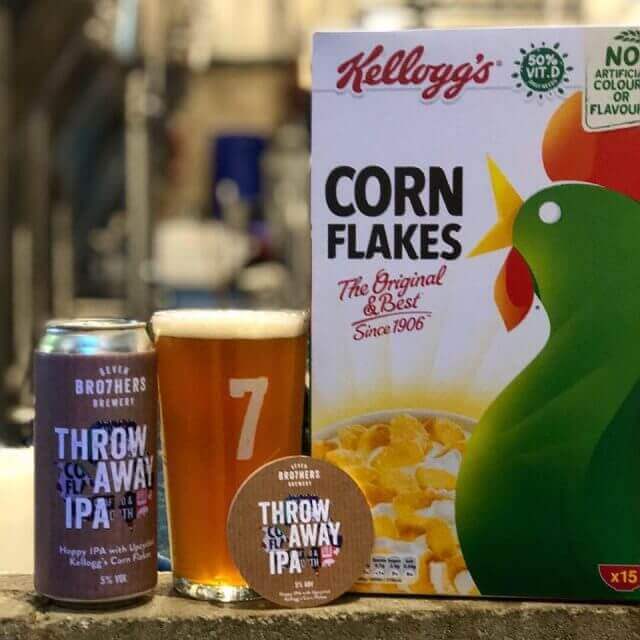
Kellogg’s UK has partnered with Seven Bro7hers in Saldorf, UK, to release beer called Throw Away IPA from its iconic cornflakes. 60 kg of Kellogg’s corn flakes replaces 30% of wheat grain. The resulting 5% ABV retains the golden color of the iconic breakfast cereal and is available in cans and bottling at Seven Bro7hers Brewery stores and the Manchester Brewery in the UK.
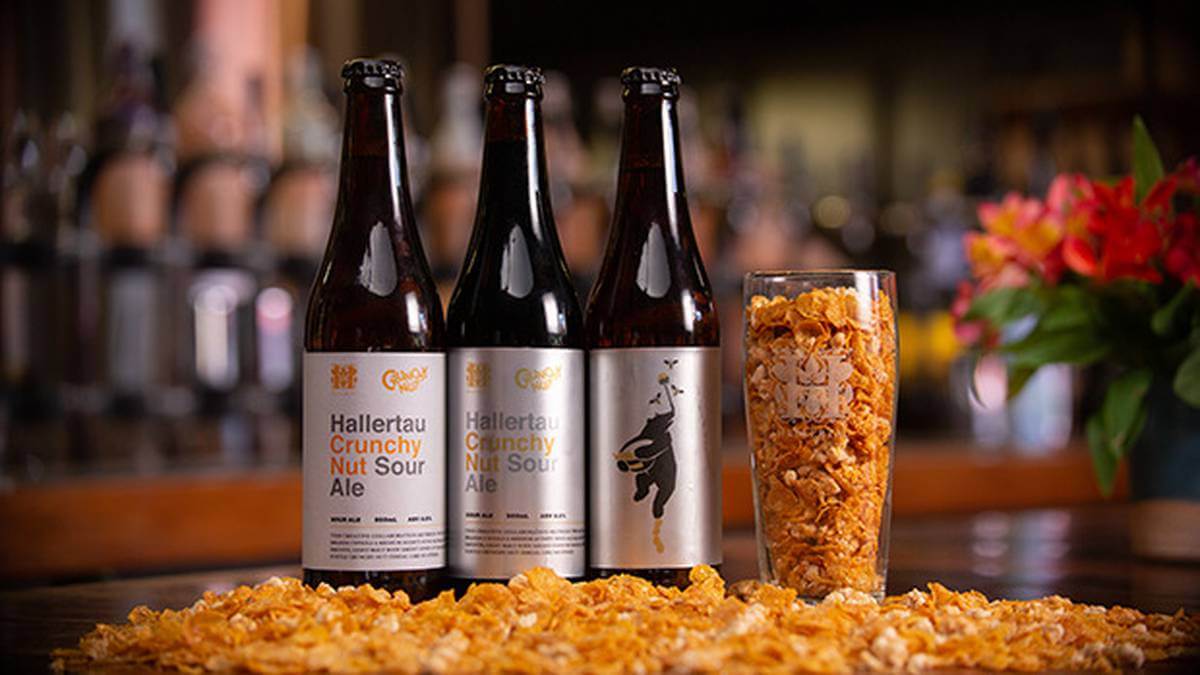
The next collaboration between Kellogg NZ and Auckland’s Hallertau Brewery is a limited edition Hallertau Crunchy Nut Sour Ale, inspired by Crunchy Nut flakes, which also underlines how versatile breakfast cereals can be. The entire cooked batch was instantly sold out at various retail outlets in Auckland.
The Kellogg IPA was a huge success in the market and became one of the UK beer hits. With the collaboration with craft brewers, Seven Bro7hers Brewery continued.
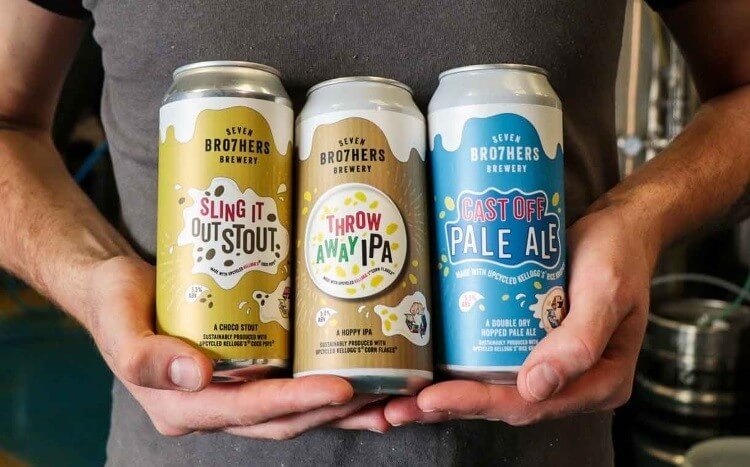
The two new beers are designed to replicate the success of Kellogg’s IPA. Sling it Out Stout uses 80 kg of Kellogg Coco Pops instead of malted barley, giving it its characteristic chocolate flavor. And the double-hopped Cast off Pale Ale uses 80 kg of Kellogg’s Rice Krispies to replace malted barley, giving sweet flasvor to the beer. Both new beers contain 5.5% of alcohol.
The beer is available on the Seven Bro7hers website, several UK stores, UK pubs and Booths Country Stores. The company plans to start selling new products in Ocado and Selfridges.
Still, some beer companies manage to really surprise fans of the foamy drink. For example, the SAN Test Pilot beer prepared by the Ballast Point (USA) brewery is brewed from water collected from … air conditioners. The brewers’ partner was San Diego Airport, one of the first airports in the United States to collect condensed water for recycling. It turns out to collect about 380 thousand liters of water per year, from which a fairly strong Kölsch (5.8%) is obtained, with a light and refreshing body and notes of ripe fruits. In the best traditions of the circular economy! Beer is sold only in kegs. You can try it at 3 Ballast Point establishments in San Diego.
«Purified» food
The circular economy philosophy is shared by both producers and consumers. For example, according to the UFA, 60% of consumers would like to buy more products made from processed food, and 95% of this consumer group would like to contribute to reducing food waste. This attitude is in line with the traditions of responsible consumption and the Zero Waste trend. Therefore, the upcycled foods movement will gain momentum.
However, manufacturers can face challenges in releasing new products from food waste. Until programs for the certification of upcycled foods methods are in place, producers must independently certify their consumers that their products comply with the regulations.
Producers looking to follow global trends and join the growing upcycled foods movement have the potential to easily gain new loyal consumers. And the positive attitude of the latter allows the enterprises of the circular economy to feel more confident at a time when manufacturers “feel uneasy” thinking about the future.
